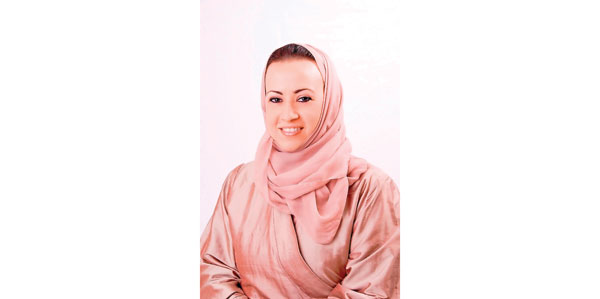
403
Sorry!!
Error! We're sorry, but the page you were looking for doesn't exist.
Qatar tops in GCC female workforce
(MENAFN- The Peninsula) Qatar, with 50.8 percent working women, has the highest female workforce among the GCC member states, followed by the UAE (46.6 percent) and Kuwait (43.4 percent), according to a statement yesterday.
Referring to a study by International Labour Organisation, a Jeddah-based research centre said wide disparities exist in the GCC states when it comes to women's participation in employment.
For instance, in Saudi Arabia only 18.2 percent of Saudi women are joining the workforce, while in Oman and Bahrain the ratios stood at 28.6 percent and 39.4 percent, respectively.
Although the GCC countries have made strides in women's education, their participation in the labour force lags behind developed countries, at around 30 percent compared to 70-80 percent for most OECD countries.
According to the joint study by Al Sayedah Khadijah Bint Khawilid Center (formerly Booz & Company), family businesses in the GCC seek to address new challenges and transition to future generations and women have the opportunity to take on more active roles.
The study investigated women's role in family businesses in the GCC. It is based on insights from client work, publicly available information and interviews with stakeholders in 30 leading family businesses in the GCC in the past one year.
The study suggests that in the next five to 10 years, a large number of GCC family businesses are expected to face a transition to the third generation.
Succession planning is one of the most critical challenges family businesses face but it can also be a great opportunity to draw from the entire talent pool, not just the male members of the family. As female family members become shareholders via inheritance, they tend to seek a role in the governance and oversight of the business.
Dr Basmah Omair, CEO, Al Sayedah Khadijah Bint Khawilid Center, said: "This is a propitious time for family businesses as all GCC countries have made female economic inclusion a top priority.
"The value of diverse perspectives from all members of the family is gaining widespread recognition as most family businesses in the GCC are facing transition from the second to the third generation of ownership.
"As a result, there is a supportive environment for family businesses to take advantage of the contributions their women can make.
"GCC family businesses are also looking at global best practices and finding that female family members are increasingly becoming a vital force within their foreign counterparts.
"Several trends have contributed to women's growing leadership over the past two decades, including changing social conditions, such as smaller family sizes and higher average age of marriage; increasing efforts from women to acquire skills that would make them eligible for a wider spectrum of roles in business; and growing social acceptance that encourages women to be more involved in the family business," Dr Omair added
Referring to a study by International Labour Organisation, a Jeddah-based research centre said wide disparities exist in the GCC states when it comes to women's participation in employment.
For instance, in Saudi Arabia only 18.2 percent of Saudi women are joining the workforce, while in Oman and Bahrain the ratios stood at 28.6 percent and 39.4 percent, respectively.
Although the GCC countries have made strides in women's education, their participation in the labour force lags behind developed countries, at around 30 percent compared to 70-80 percent for most OECD countries.
According to the joint study by Al Sayedah Khadijah Bint Khawilid Center (formerly Booz & Company), family businesses in the GCC seek to address new challenges and transition to future generations and women have the opportunity to take on more active roles.
The study investigated women's role in family businesses in the GCC. It is based on insights from client work, publicly available information and interviews with stakeholders in 30 leading family businesses in the GCC in the past one year.
The study suggests that in the next five to 10 years, a large number of GCC family businesses are expected to face a transition to the third generation.
Succession planning is one of the most critical challenges family businesses face but it can also be a great opportunity to draw from the entire talent pool, not just the male members of the family. As female family members become shareholders via inheritance, they tend to seek a role in the governance and oversight of the business.
Dr Basmah Omair, CEO, Al Sayedah Khadijah Bint Khawilid Center, said: "This is a propitious time for family businesses as all GCC countries have made female economic inclusion a top priority.
"The value of diverse perspectives from all members of the family is gaining widespread recognition as most family businesses in the GCC are facing transition from the second to the third generation of ownership.
"As a result, there is a supportive environment for family businesses to take advantage of the contributions their women can make.
"GCC family businesses are also looking at global best practices and finding that female family members are increasingly becoming a vital force within their foreign counterparts.
"Several trends have contributed to women's growing leadership over the past two decades, including changing social conditions, such as smaller family sizes and higher average age of marriage; increasing efforts from women to acquire skills that would make them eligible for a wider spectrum of roles in business; and growing social acceptance that encourages women to be more involved in the family business," Dr Omair added

Legal Disclaimer:
MENAFN provides the
information “as is” without warranty of any kind. We do not accept
any responsibility or liability for the accuracy, content, images,
videos, licenses, completeness, legality, or reliability of the information
contained in this article. If you have any complaints or copyright
issues related to this article, kindly contact the provider above.


















Comments
No comment